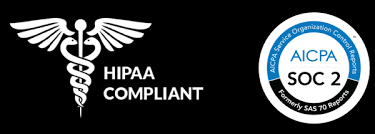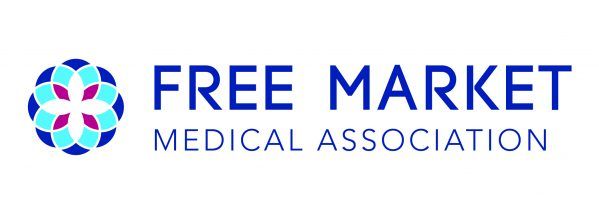Health Compiler and Hint Collaborate to Enhance Primary Care Practice Growth

Neer Patel
Transforming Healthcare Benefits: A Visionary Approach by Neer Patel
In the midst of an ever-evolving healthcare landscape, where rising costs and inefficiencies continue to challenge employers, Neer Patel stands as a trailblazer with a transformative vision for the future of health benefits. As the co-founder of Virtuous Benefits and a key player in the growth of DirectMed DPC, Patel is reshaping how businesses approach healthcare for their employees. His journey from helping his wife, Dr. Katriny Ikbal, launch DirectMed DPC to creating innovative self-funded insurance models demonstrates the power of creativity, collaboration, and a patient-centric approach in overcoming the challenges of the broken healthcare system.
Through Patel’s work, businesses and employees are discovering new, sustainable solutions that dramatically reduce healthcare costs, while providing more effective and personalized care. As we look to the future, his insights into Direct Primary Care (DPC), self-funded insurance, and the overall benefits landscape offer a compelling roadmap for how the system can evolve. In this article, we’ll explore Patel’s visionary approach to health benefits and the powerful impact it’s having on employers and their workforce.
Redefining Healthcare with Open Access and Direct Primary Care
Patel envisions a future where open access health plans become the norm for employers, removing network restrictions and providing employees with more flexible care options. Central to this vision is
Direct Primary Care (DPC), a model that offers high-quality, personalized care for a predictable monthly fee, bypassing the costly and complex claims processes of traditional insurance. DPC fosters better patient outcomes and improves satisfaction by empowering patients to ma
"When people have direct access to their primary care doctor, they feel more empowered and make better health decisions," says Patel.
Unlocking Cost Savings: The Power of Self-Funded Insurance
Patel’s work with
Virtuous Benefits demonstrates how self-funded insurance can significantly lower costs for employers while maintaining comprehensive coverage. These plans pay cash prices for healthcare services, often 10 to 20 times less than traditional network prices, and avoid costly claims. Moreover, unused claims dollars are refunded to employers, enabling reinvestment into health plans to improve them each year.
"Self-funded insurance gives employers control over healthcare costs while still providing quality care for employees," Patel explains.
Elevating Care Quality: Direct Care Providers at the Core
At the heart of Patel’s approach is the belief that
quality care is crucial to improving health outcomes. By integrating DPC into health plans, Patel ensures employees have access to affordable, personalized healthcare. DPC builds long-term patient-provider relationships, focusing on preventive care and holistic health—resulting in fewer claims and lower overall healthcare costs.
"When we focus on quality, we see better results at a fraction of the cost," Patel notes.
Overcoming Challenges: Transitioning to a New Model
Transitioning from traditional insurance to self-funded, DPC-based models can be challenging for employers, often due to resistance to change. However, Patel emphasizes that
education and
clear communication are key. As more employers experience the benefits firsthand, the shift becomes easier.
.
"Once employers see the benefits of self-funded plans and DPC, the transition becomes much smoother," Patel adds.
The Future of Health Benefits: Empowering Employers and Employees
Neer Patel is reshaping healthcare benefits with a focus on
empowering employers and
improving employee health. Through
self-funded insurance and
Direct Primary Care, employers can lower healthcare costs while enhancing care quality. Patel’s goal is to expand this model nationwide, creating a healthier, more sustainable healthcare ecosystem for both businesses and their workforce.
"This is about more than saving money—it’s about creating a healthier workforce," Patel concludes.
Conclusion:
A Blueprint for the Future
Neer Patel’s work is reshaping how we think about healthcare benefits—moving away from a broken system focused on cost escalation and inefficiency toward one that prioritizes patient care, cost transparency, and sustainability. By adopting self-funded insurance and Direct Primary Care, employers can create a healthier workforce, reduce healthcare costs, and ultimately lead the charge in a more efficient and effective healthcare system.
Patel’s vision for the future is one of empowerment—empowering employers to take control of their healthcare costs, empowering employees to take control of their health, and empowering healthcare providers to deliver the care patients truly need. His work is a reminder that, with the right tools and mindset, healthcare doesn’t have to be a financial burden—it can be a source of strength for both employers and employees alike.
Interested to share your story?
Contact us today & Let us know!
We will get back to you as soon as possible
Please try again later

+1 415 657 8241
Health Compiler Inc.
2261 Market Street #4632
San Francisco, CA 94114
All Rights Reserved | Health Compiler Inc.
Made with ❤️ in San Francisco

QUICK LINKS
RESOURCES
LET'S STAY IN TOUCH
Contact Us
We will get back to you as soon as possible.
Please try again later.

